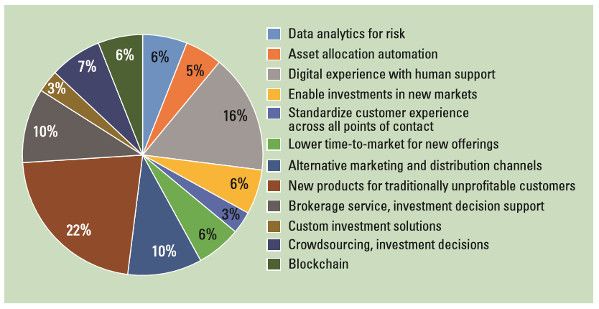
The use of big data in financial services and fintech has transformed the industry, allowing companies to gain insights into consumer behavior and preferences and develop more targeted and effective financial products and services. In this article, we'll explore the impact of big data on financial services and fintech and how it is changing the way companies approach their business strategies.
The Benefits of Big Data in Financial Services and Fintech
The use of big data in financial services and fintech offers a range of benefits, including:
- Improved Underwriting and Risk Management
One of the primary benefits of big data in financial services and fintech is the ability to improve underwriting and risk management. By analyzing large volumes of data, companies can gain insights into consumer behavior and preferences and develop more targeted financial products and services. This can lead to better risk management and a more accurate assessment of creditworthiness.
- Personalization
Big data can also be used to personalize financial products and services. By analyzing consumer data, companies can develop more personalized offerings that meet individual needs and preferences. This can lead to a more positive customer experience and increased brand loyalty.
- Fraud Detection
The use of big data in financial services and fintech can also help detect and prevent fraud. By analyzing large volumes of data, companies can identify patterns that may indicate fraudulent activity and take action to prevent it.
How Big Data is Used in Financial Services and Fintech
Here are some of the ways that big data is used in financial services and fintech:
- Credit Scoring
Big data is used to develop credit scoring models that are more accurate and predictive than traditional credit scoring methods. By analyzing a broader range of data points, companies can better assess creditworthiness and reduce the risk of default.
- Investment Management
In investment management, big data is used to develop more accurate predictions of market trends and identify potential investment opportunities. This can lead to better investment decisions and increased profitability.
- Fraud Detection and Prevention
Big data is also used in fraud detection and prevention. By analyzing large volumes of data, companies can identify patterns that may indicate fraudulent activity and take action to prevent it.
The Challenges of Using Big Data in Financial Services and Fintech
While the use of big data in financial services and fintech offers many benefits, there are also challenges that need to be addressed. Here are some of the challenges of using big data in financial services and fintech:
- Data Privacy and Security
Privacy and security are major concerns when it comes to the use of big data in financial services and fintech. Consumers' personal and financial information must be protected from unauthorized access and use.
- Data Quality
Data quality is a major challenge in big data in financial services and fintech. Ensuring that data is accurate, complete, and consistent can be difficult, especially when dealing with large volumes of data.
- Regulatory Compliance
The use of big data in financial services and fintech is subject to regulatory compliance requirements. Companies must ensure that they are in compliance with applicable regulations and guidelines.
The use of big data in financial services and fintech has transformed the industry, allowing companies to gain insights into consumer behavior and preferences and develop more targeted and effective financial products and services. While there are challenges that need to be addressed, such as data privacy and security concerns and regulatory compliance requirements, the benefits of big data in financial services and fintech are clear. With continued investment in big data technologies and a focus on addressing these challenges, we can unlock the full potential of big data to transform the financial services and fintech industry.